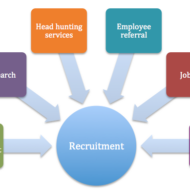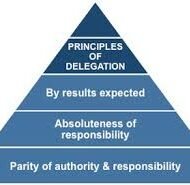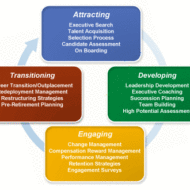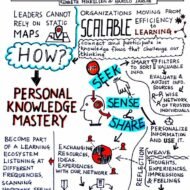Posted by Managementguru in Leadership, Quotes and Quotes Only
on Jul 31st, 2015 | 0 comments

All-time Quotes by Abdul Kalam The crux of his life in his very own words: “My story—the story of the son of Jainulabdeen, who lived for over a hundred years on Mosque Street in Rameswaram island and died there; the story of a lad who sold newspapers to help his brother; The story of a pupil reared by Sivasubramania Iyer and Iyadurai Solomon; the story of a student taught by teachers like Pandalai; the story of an engineer spotted by MGK Menon and groomed by the legendary Prof. Sarabhai; The story of a scientist tested by failures and setbacks; the story of a leader supported by a large team of brilliant and dedicated professionals. This story will end with me, for I have no belongings in the worldly sense. I have acquired nothing, built nothing, possess nothing—no family, sons, daughters.” Some very unique and inspiring quotes by the great man: 1. “All birds find shelter during a rain . But Eagles avoid rain by flying above the clouds. Problems are common ,but attitude make the difference . 2. “Let me define a leader. He must have vision and passion and not be afraid of any problem. Instead, he should know how to defeat it. Most importantly, he must work with integrity. 3. “Anyone who converts a challenge into an opportunity through innovation creates wealth. He or she indeed is a leader, are you? 4. “Yesterday leaders commanded the control (yesterday they were commanders, the leaders). Today, leaders empower and coach, that means potential leaders will be empowered to the exposure of needs of sustainable development, what we need today. 5. “For success in all missions, it is essential to have creative leaders in our country or anywhere else. Creative leadership means exercising the vision to change the traditional role from the commander to the coach. 6. “What is Success? When your signature changes to ‘Autograph’. 7. “Take risks in your life. If you win, you can lead! If you lose, you can guide! 8. “Man needs difficulties because they are necessary to enjoy success. 9. “Don’t read success stories you will get only messages, read failure stories you will get some ideas to get success. 10. “Dreams are not what you see in your sleep, dreams are what which doesn’t let you sleep. 11. “You have to dream before your dreams can come true. 12. “To succeed in your mission, you must have single-minded devotion to your goal. Also “If you get No as an answer, remember N.O. means “Next Opportunity”. So Let’s be positive. 13. “If you salute your duty, you have no need to salute anybody, But- If you pollute your duty, you have to salute everybody. 14. “I am not a handsome guy, But ‘ I can give my hand-to-some one who needs help. Beauty is in the heart Not in the face. 15. “Never rest after your first victory, because many lips are waiting to say that your first victory was just luck. 16. “If a country is to be corruption free and become a nation of beautiful minds, I strongly feel there are three key societal members who can make a difference. They are the father, the mother and the teacher. 17. “It is very easy to defeat someone, but it is very hard to win someone. 18. “Suffering is the essence of success. 19. “Dream, Dream Dream Dreams transform into thoughts And thoughts result in action. 20. “My message, especially to young people is to have courage to think differently, courage to invent, to travel the unexplored path, courage to discover the impossible and to conquer the problems and succeed. These are great qualities that they must work...

Posted by Managementguru in Business Management, Human Resource, Principles of Management, Training & Development
on Mar 22nd, 2014 | 0 comments

Popular Recruitment Channels Personnel procurement involves recruitment, selection and placement of capable employees who act as the key players in determining the success or failure of an organization. Recruitment serves the purpose of identifying and luring prospective candidates for the actual or anticipated vacancies of the organization. Recruitment is termed “positive” in that it stimulates employees to apply for jobs in organizations to increase the “hiring ratio”, that is the number of applicants for a job. Personnel Inventory: Recruitment is an extensive process that has to be dealt with care by companies as it is the first step for preparing personnel inventory that matches the criteria laid down in job specification and to select only those who are found suitable for the vacant positions. Selecting right people for the right job is very important as it ensures organizational stability and consistency. The sources of recruitment can be internal or external. Internal sources of recruitment comes in handy when you want people to understand and respond well to overall objectives of the organization which can be achieved by promotions, quite suitable for managers at the middle level and top level. Those already working for the organization will be quite familiar with the activities and requirements of the firm and a promotion would serve to boost their morale, thus resulting in improved performance coupled with commitment. External sources of recruitment may be as follows: Advertising: This method is suitable when the organization plans to expand its activities across the geographical boundaries and attract talent which is spread out. The company to reach out to a larger target group can advertise its requirements through print media, radio, television, professional and technical journals. This is a popular way of recruitment as the response ratio is quite on the higher side when compared to any other source of recruitment. Employment exchanges: The unemployed personnel register their names and qualifications in the exchanges and special employment exchange sources are organized for ex-military personnel, physically handicapped and professionals in different places. It is really a matter of concern that a major percentage of youth prefer only white collar jobs and they rate other blue collar jobs and self employment opportunities a step lower. This attitude should change as there will be no permanent jobs existing in the future but only projects. Eventually people will be shifting between various projects and at the end of the day, whether they derive any satisfaction or a feeling of cherishment about their job or work will become a big question mark. Schools and colleges: These are excellent sources of external recruitment as corporate companies offer good placement opportunities to students studying in business schools and other engineering and professional institutions even before the completion of their degree and students should aim to acquire admission in reputed educational institutions as it increases the chance of confirmed placement. Popular software and engineering companies want the best talent in the industry and the benefit of hiring freshers is that they can be well trained and molded as per their job requirements. Trade unions: In firms where trade unions are effective, the management looks up to the union in their recruitment efforts. It makes possible good labor relations. Advantages of recruiting from outside the company: Employees from varied background with broad experience add value to the company The new employees can infuse fresh ideas that may prove fruitful. Strategic Principles of recruitment: Employ the best qualified person for each job Retain the most promising ones Offer promising careers and security Provide opportunity for empowerment Be competitive with public policies Provide facilities for personal growth on skill and knowledge. Other Sources: Other sources...

Posted by Managementguru in Human Resource, Organisational behaviour, Principles of Management
on Mar 19th, 2014 | 0 comments

You Can Delegate Authority, but Not Responsibility Responsibility of a Manager: A corporate manager is accorded with the huge responsibility of leading his subordinates in the right direction, by giving proper insights on the tasks to be accomplished. The success rate depends on how well he delegates his authority down the line to get things done. The art of delegation results not only in down sizing his work pressure but also in the empowerment of subordinates, that elevates them to a higher plane of understanding and achievement. An Excerpt from The Art of Delegation: Developing This Essential Managerial Skill Delegation helps you handover the authority of certain tasks to capable team members so that you free up your time to work on more pressing issues. But you still remain responsible to get those completed in proper way. Hence it is essential to have a status check or communication with the team member on regular basis. Accountability of Subordinates: The subordinates, when entrusted with the responsibilities of performing a task by themselves and the necessary authority to make decisions within the area of their assigned duties, are obliged to perform. The necessary assistance and training for the new assignment has to be planned for, by the manager to make them perform as per the expected standards. The thing is right people should be chosen for the entrusted job. They should possess the zeal and enthusiasm to deliver the desired output. Some people perform beyond expectations and they should be rewarded with additional responsibilities. Whatever the case may be, it is a wise thing to delegate simple assignments at the initial stage, and proceed with more challenging jobs depending upon the caliber of the incumbent. THE ENTREPRENEUR’S GUIDE TO DELEGATION Clear and Clever Delegation: Clear and clever delegation facilitates to build a formal organization structure, where the subordinates are trained well and they look up to the manager for direction and guidance. Although the authority is delegated, the manager is held accountable and answerable to the management for the performance output or the end result. Some managers hesitate to delegate, just for the reason that their weaknesses might get exposed. Some don’t have confidence in their subordinates. Some even fear that they might lose their power if the subordinate is very shrewd and exceeds the expectations. Managers fail because of poor delegation; the reasons being personal attitude of managers in delegating authority. Let us understand some of the basic principles to be adhered to while delegating: The authority delegated to subordinates should be adequate enough to ensure their ability to accomplish the expected results. Authority can be delegated but responsibility can never be delegated. Responsibility of subordinates is “performance” and that of managers is “responsibility for the action of their subordinates”. One cannot be held responsible for a task if he has only limited authority. There need to be a balance between authority and responsibility. The presence of a single superior will invoke greater feeling of personal responsibility among the subordinates. Lack of receptiveness on the superior’s part will incur greater loss in terms of performance and efficiency. Instead, a manager should develop a trustful attitude towards his subordinates and should have the patience to explain the policies, objectives and guidelines and give sufficient authority to perform a duty. HOW WELL EMPLOYEES KNOW ABOUT YOUR ORGANIZATION? Although initially the efforts taken to train a subordinate is time consuming, the more empowered he becomes, less is your time taken to accomplish the enterprise objectives. The superior must be able to create a climate of mutual trust and goodwill, to make delegations effective in the light of expected...

Posted by Managementguru in Business Management, Human Resource, Labor Management, Principles of Management
on Mar 10th, 2014 | 0 comments

Dimensions of Human Resource Management I would like to brief you on some of the key aspects that mark the paradigm shift in the HR environment towards better management prospects. 1. The Human Resource function has shifted its focus to a much wider canvas that includes Empowerment of EmployeesRestructuring the Organisation and so on. 2. A range of HR sub-systems are involved in Planning The NumbersTypes And Skills Of HrEnsuring Their AvailabilityPlacing In The Right JobPromoting And Nurturing Their Mental HealthHelping Them Develop Special Talent And Skills 3. Human Resource is considered as an “investment” and no more an “expenditure”. Investment in TrainingRe-Training AndContinuous Learning On The Job develops the skills and competences of managers and employees and prove to be an useful investment. 4. The concepts of Learning Organisations AndTeam-Building serves a basis for “Competitive advantage” and “Motivating the employees.” 5. Values that are stressed upon are Co-OperationHarmonisationSynergyTrustBeing Pro-ActiveCollaboration 6. Strategy: VisionMissionObjectivesGoals– How these can be achieved? The techniques that are basically holistic in nature can solve the purpose. Such techniques involve SEWA– Self mastery, Empathy for workers, Worker-directedness and Achievement in performanceABO-Action by Objective Nine Dimensions of an Effective HR Department: What is the reputation of the HR department?What are the criteria (deliverables) that shape HR work?What is the mission or strategy of the capabilities – focused HR department?How is the HR department organised? How does HR facilitate the definition and creation of organisation capabilities?How do we make better HR investment and choices?How do we create HR practices?How does HR go about doing its work? What do HR professionals need to be, know, and do to be effective? Let us make a sincere comparison between the past and the present in terms of HR perspective These techniques produce performers who find their way through any set of given problems, manage themselves and lead the team to a stae of self- realisation. Old model vs New model 1. Job was the basic unit/ Team is the basic unit 2. Relations with environment there handled by the individuals/ Densely networked with environment 3. Information flow was vertical/ now it is vertical, horizontal and holistic 4. Many layers of management / Organisations have become flat 5. Emphasis on structures/ Emphasis on process and literally virtual organisations have evolved 6. Career path upward and linear/ career path lateral and flexible 7. Standardised evaluation and reward system/ Customised evaluation and reward system 8. Ethnocentric/ International 9. Single strong culture/ Multicultural and diversity of viewpoints and...

Posted by Managementguru in Business Management, Entrepreneurship, Human Resource, Leadership, Organisational behaviour, Principles of Management
on Mar 9th, 2014 | 0 comments

Profile of a successful leader Adaptive Capabilities: Leaders need to radically change their mindset so as to stand the test of time; but the core leadership attributes like vision or creativity, intelligence, commitment, and a healthy dose of luck still continue to define the pre-requisites of success. Integrity of Character is most important when talking about successful leadership. The philosophical undercurrent is that “Be Good, Do Good” and you will be good. The motive must be devoid of mistakes though there is room for mistakes in judgment. Leaders must have a clear vision and be able to communicate this vision to others so that it becomes a shared vision and everybody willingly contributes in fulfilling the vision. Six ‘C’s or six criteria that determine a leader’s credibility Conviction Character Care Courage Composure Competence Cross-Functional Expertise – Acquisition of knowledge should make a leader humble and flexible and gaining knowledge must be seen as a life long experience rather than collection of voluminous data or skills. A leader will try to apply his broad functional knowledge and expertise in the right places and the results will be definitely magnificent. A leader must look into the possible options rather than to plan, the possible rather than the perfect, involvement instead of obedience. Change is the only entity that remains unchanged and it is inevitable for the leaders to consider change as the core element of growth. With accelerated pace of change in the economic, political and socio-cultural environment, leaders not only need to acquire new knowledge and skills but they also need to unlearn many of the things that have out-grown their purposes. Leaders should follow the CODE OF PRIDE to motivate the workforce. P– PROVIDE FOR A POSITIVE WORKING ENVIRONMENT R– RECOGNISE EVERYONE’S EFFORTS I– INVOLVE EVERYONE D– DEVELOP SKILLS AND POTENTIAL E– EVALUATE AND MEASURE CONTINUOUSLY In large corporate organizations, the leader must be willing to share power and control so that leadership is encouraged at various levels. Successful leaders are those who are self-motivated by setting their own standards and compete with themselves. Innovation is the need of the hour What do you mean by innovation? Creating something new or modifying the old one. Here the term innovation implies the change in the “THOUGHT PROCESS” of leaders who are able to turn a crisis into an opportunity. Also called as “THINKING OUT OF THE BOX” where a leader finds new application for old ideas which cannot be discarded or dis-regarded. “You must learn from your past mistakes but not Lea(r)n on your past successes”. High achievers take moderate risks calculating the circumstances and they rely on their own abilities unlike low achievers who invariably like to minimize risks or take wild and irrational risks. Running a corporate business has become more like an experiment since we cannot control or predict the future. It is highly unstable and unpredictable. So leaders have to cope up with this non-linear force acting in the external environment building up pressure. Leaving things as they are can be just as predictable as changing everything, you lose or win both ways. Now let us look at some of the definitions of Leadership 1. “Leadership is generally defined as influencing people so that they will strive willingly towards the achievement of group goals.”- Koontz and O’Donnell 2. “Leadership is the lifting of man’s visions to higher heights, the raising of man’s performance to higher standards, the building of man’s personality beyond its normal limitations.”- Peter F.Drucker 3. “Leadership is the ability to secure desirable actions from a group of followers voluntarily without the use of correction.”- Alford and Beatty 4. “Leadership refers to the quality of the behavior of individuals where by they guide people on their activities in organized efforts.”- Chester I.Bernard Behavioral Commitments of a Leader: Challenging the process Challenging the status quo and act as radical change agents Inspiring others by being pioneers, instigators, navigators and learners Showing risk-taking ability,...










